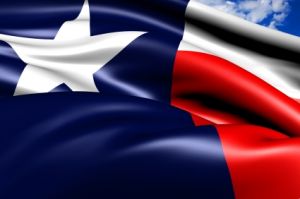
How far should government go in keeping religion out of schools? Most people who become an ordained minister in the Universal Life Church believe that the explicit endorsement of religion through school curricula violates the U.S. Constitution, but what about students voicing their religious opinions in school activities? They have every right to do so, according to a Texas judge who recently ruled in favor of a group of cheerleaders who want to keep displaying their Christian banners at local high school sports games. But should we as ULC pastors stand behind the decision?
The debacle started with an attempt by a group of atheists and agnostics to ban the "Bible banners," as they have been called. The Wisconsin-based Freedom From Religion Foundation (FFRF) sent a "strongly worded" letter in September to Kountze school superintendent Kevin Weldon telling him the activity violated the Constitution because of its religious character. Weldon ordered an immediate end to the activity, saying that the school district must obey constitutional law whether or not it conflicted with the personal beliefs of school administrators and board members. Andrew Seidel, an attorney for the FFRF, said that the practice conflicted with a U.S. Supreme Court ruling in 2000 which determined that school-led prayers in another Texas school district violated the Establishment Clause of the First Amendment.
Soon after the FFRF launched their assault, however, students and their parents fought back and sued the district. Hardin County District Judge Steve Thomas ultimately ruled in the students' favor, allowing them to continue displaying the banners and thereby exercise "their constitutional and statutory rights at all football games and other school sporting events" pending a trial set for June. Texas Attorney General Greg Abbott hailed the ruling, saying, "[t]his is a great decision confirming that students do have a First Amendment right to express their religious beliefs in school," and that "[t]he Constitution does not command religious silence at school. It just prevents the school from dictating religious belief. This was the students doing it on their own, and they have every right to do so." In the United States at least, students have the right to voice religious opinions, but the school does not have the right to endorse them.

However, sometimes the line between student expression and school involvement remains unclear. Generally, ministers ordained online in the ULC agree that individuals deserve to enjoy the fundamental freedom of self-expression, but how far the school should go in accommodating such beliefs deserves particular scrutiny. The Kountze High School cheer-leading squad is a campus organization with faculty oversight which represents the school, and it forces non-Christian students and spectators to choose between cheer-leading and avoiding proselytizing; does that mean the school is at fault here? It would seem at least in their capacities as cheerleaders they are speaking for the school at those times, so it could easily be argued that the school itself is therefore choosing to display text from only one belief system of its students. And if the school lets Christians display Bible verses, will it also let Muslims display verses from the Qur'an, or Wiccans, passages from the Book of Shadows?
While the Universal Life Church Monastery strongly supports freedom of speech and the free exercise of religion, it also opposes government endorsement of religion over non-religion, or of one religion over another. Individuals have the right to express their beliefs verbally, but when it becomes a project created and supported by a school-funded organization, the situation becomes a lot trickier. Those who want to become an ordained minister in an interfaith church need to carefully consider the school's role, how school funds are being used, and what kinds of choices people are being forced to make.
Source:


If the students were burning a flag, as a veteran that would unset me. But that has been to be their rights. What is the difference between that and a statement that is religiously different than mine. People have got to stop comparing apples to oranges just because they can because of idea or location. The Southern Cross Flag comes to mind. There are several arguments based on Confederate Flages and what flag meant what and flew where. I saw my grand father's 1930 history book. It differed from mine which differed from the last history books used in my old high school. It seemed somebody kept changing history. I wish I had my grandfather's and a copy of mine to compare the three. I bet the kids of today would be surprised at the Government or whomever is responsible for the ugliness of the change.
It is written, they would reject Christ.
John 15:20 Remember the word that I said unto you, the servant is not greater than his Lord. If they persecuted me, they will also persecute you; if they kept my saying, they will keep yours also.